It’s painful to tell your parents something important and have them react as if they know you better than you know yourself. That’s what happened to this student who was diagnosed with autism spectrum disorder (ASD) through her university’s health center and felt it was important to share the result with her mom.
The mother’s reaction, which ended up on r/insaneparents, is dismissive, rude and somehow manages to bring her own pride into it—and, unfortunately, it will probably look familiar to many people who have been diagnosed with ASD after leaving their parents’ home.

Image credits: Sergey Kochkarev (not the actual photo)
A Reddit user posted this conversation with her mom on r/insaneparents
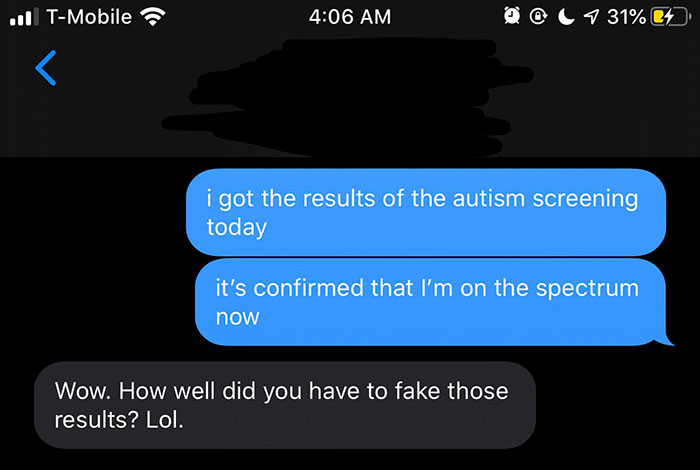


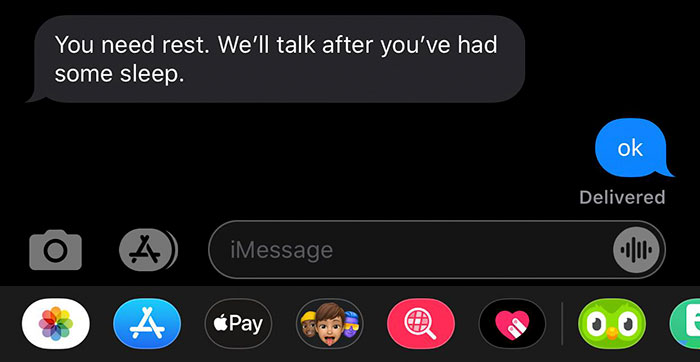
Image credits: nessie013
So how is it possible for someone not to know they’re on the spectrum until they’re at least 18? For girls in particular, it’s more common than you think.
In the last decade, increased research into how autism affects children based on gender has shown that higher social pressure on girls forces girls with the disorder to learn to mimic social behavior faster and more accurately than boys. This makes them appear better-adjusted socially, but causes mental health problems and burnout in the long run.
Doctors who are familiar with primarily male-focused autism research miss their symptoms, so parents and teachers who also lack knowledge of autism beyond the stereotypes don’t ask for more opinions. It’s becoming apparent that many women with ASD are undiagnosed just because they grew up before this advance in autism research.
She elaborated on why she decided to get screened for autism, and how
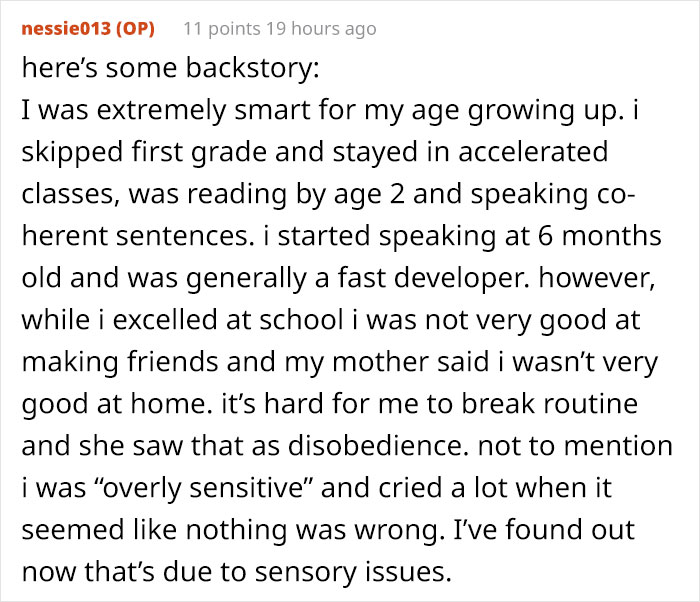

Image credits: nessie013
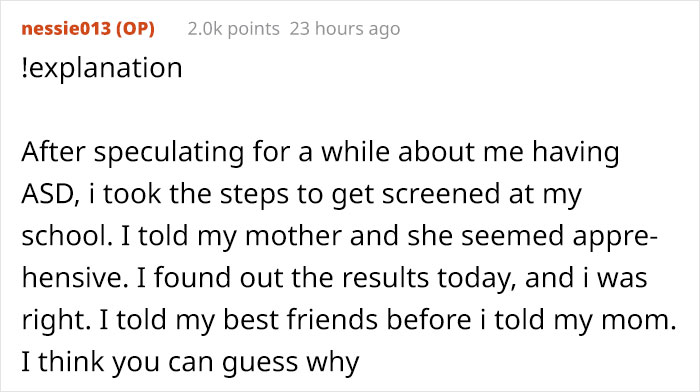
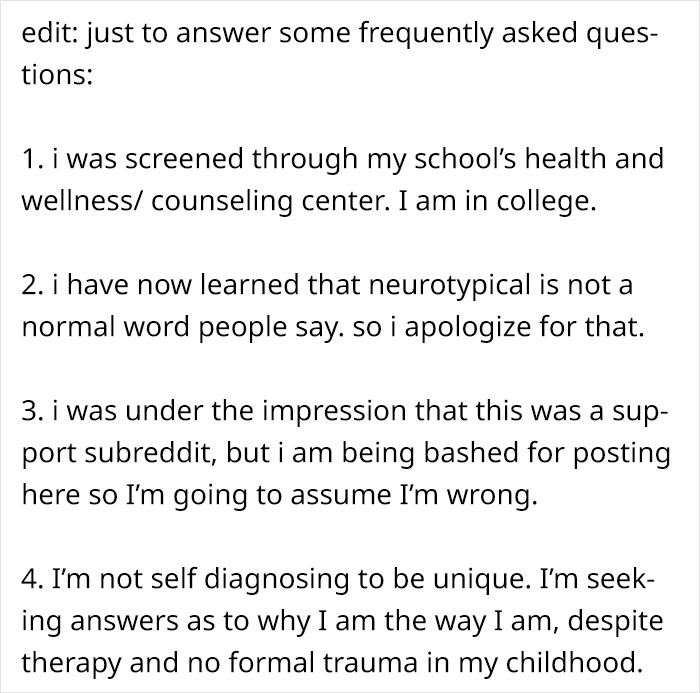
Image credits: nessie013
Popular understanding of autism also has yet to catch up. When young adults suspect that they are on the spectrum (usually after talking with or reading the experiences of other autistic people) and express interest in getting screened, they are often dismissed and have it explained away by their family members who think they know “what autism looks like” and can’t accept that nobody had noticed up to this point. Never mind the fact that recent research has found that autism can look different than they thought it did.
Finally, many parents, when their child gets screened for ASD as an adult, wonder what benefit somebody who has already made it through school and to adulthood with no supports has to gain from a diagnosis. Their first assumption might be that it’s too mild to be a disability worth diagnosing at all.
But young adults who decide to get screened for ASD usually do so because they have already been struggling with unmanageable anxiety, depression, and social exclusion for years. Finding out that aspects of yourself that you spent your whole life not understanding are known autistic traits that others have researched and written about can help you explain them better and find more appropriate advice for coping with them.
Commenters sympathized with the student


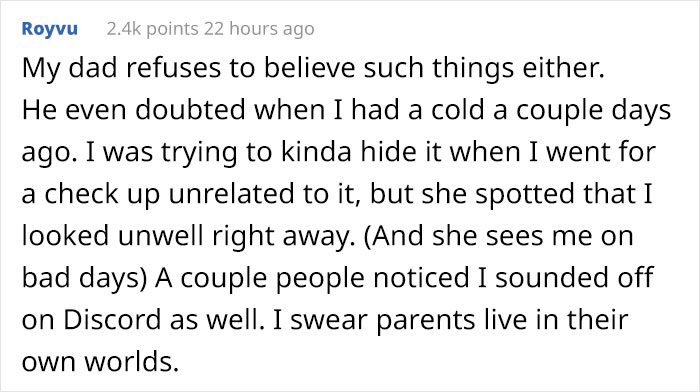
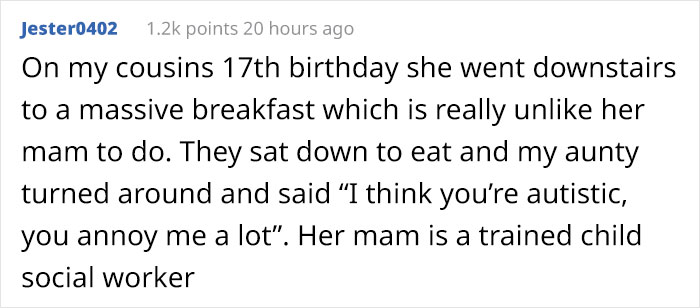

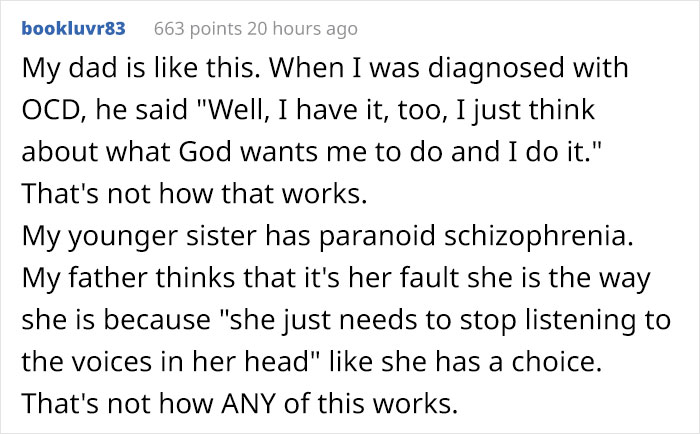

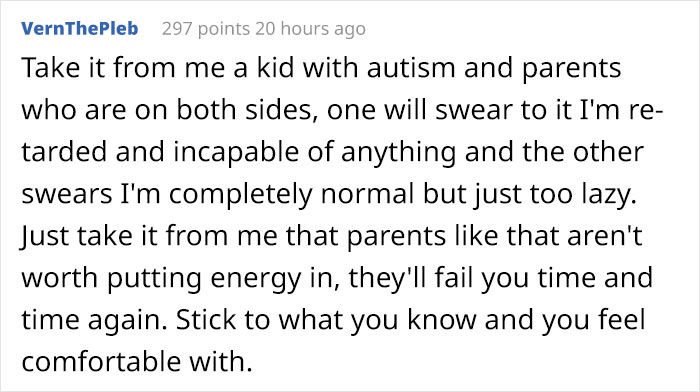



from Bored Panda https://ift.tt/36q8BTg




0 Yorumlar